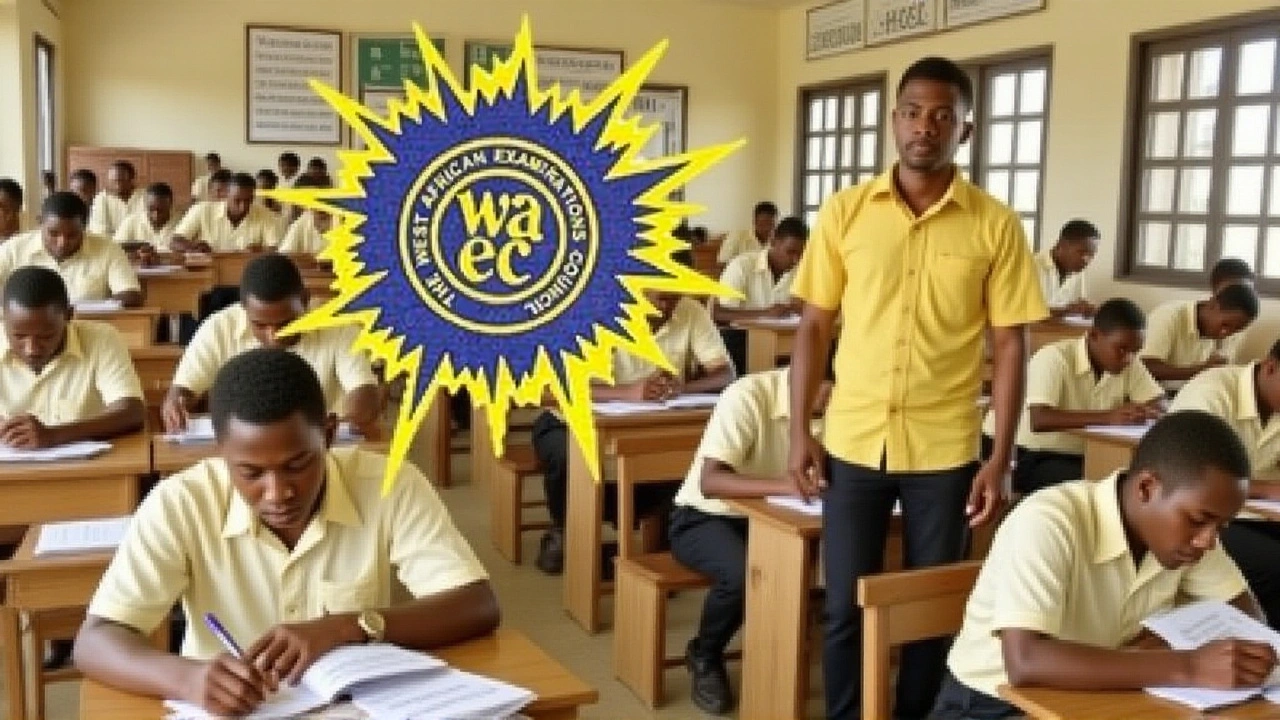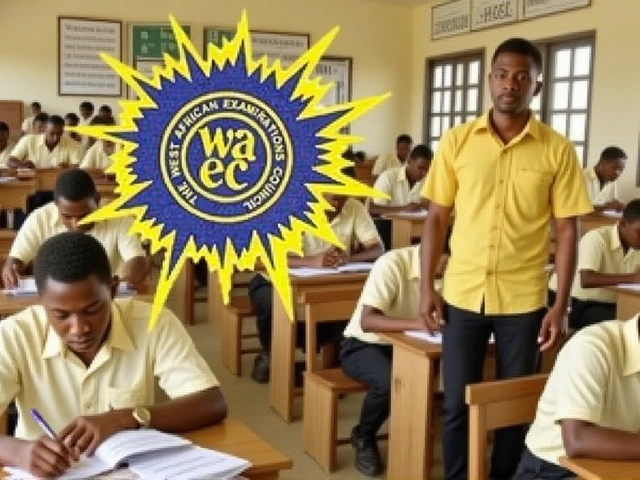When West African Examinations Council (WAEC) announced on that it was pulling the 2025 WASSCE results because of a technical glitch, the nation’s students, parents and teachers were thrust into a swirl of uncertainty. Almost simultaneously, the Joint Admissions and Matriculation Board (JAMB) confirmed a server‑side error that scrambled the UTME scores of roughly 380,000 candidates in the Lagos and South‑East zones. The two bodies, responsible for the country’s most consequential academic assessments, faced criticism that could erode public confidence in the fairness of Nigeria’s education pipeline.
What Went Wrong? The Technical Glitches Explained
The WAEC issue stemmed from a newly‑rolled‑out "paper serialization" system. Designed to curb exam malpractice, the software attached a unique code to each answer sheet in subjects such as Mathematics, English Language, Biology and Economics. An internal audit after the initial release uncovered mismatched serial numbers, causing the result‑checker portal to display incorrect scores. WAEC’s Acting Head of Public Affairs, Moyosola Adesina, signed the press release from the Yaba headquarters in Lagos and promised a fix within twenty‑four hours.
JAMB’s mishap was a different beast. A software patch meant for its server infrastructure was never applied in the Lagos and South‑East data centres. The oversight corrupted the processing of candidate responses, leaving 378,997 students with scores well below the passing mark – about 78 % fell under the 200‑out‑of‑400 threshold. JAMB’s registrar described the fault as "systemic and technical," emphasizing that the problem lay in the post‑release grading algorithm rather than candidate performance.
Government Reaction and Immediate Actions
Within hours, the Honourable Minister of Education, Dr. Maruf Olatunji Alausa, convened an emergency meeting with WAEC and JAMB officials. He instructed both agencies to mobilise technical teams around the clock and to provide transparent updates to affected candidates. The Federal Ministry of Education, through its Director of Press and Public Relations Boriowo Folasade, issued a statement on August 8, reassuring the public that the ministry would oversee an independent audit of both examinations.
WAEC temporarily disabled its online result checker, promising that a fully functional portal would be back by the end of the next day. JAMB, on the other hand, announced that all affected candidates would be offered a resit for the UTME, with new test dates slated for early September.
Impact on Students, Parents, and Schools
For the roughly 1.2 million students who sat the WASSCE and the 380,000 who took the UTME, the glitches meant sleepless nights, frantic calls to school administrators and a flood of WhatsApp messages demanding answers. Many parents worried about university admission timelines, while teachers faced the logistical nightmare of re‑scheduling remedial sessions.
- Approximately 379,997 JAMB candidates received scores below the 50 % benchmark.
- Four core WAEC subjects were affected by serialization errors.
- Both agencies pledged to complete independent audits within ten days.
- The Ministry plans to introduce a third‑party verification platform by early 2026.
Social media erupted with hashtags like #ExamGate2025 and #WAECJAMBFail, where students posted screenshots of erroneous results, teachers shared advice on coping strategies, and alumni demanded accountability.

Underlying Factors: Pandemic Aftershocks and Infrastructure Gaps
Experts are quick to point out that the 2025 cohort is still feeling the aftershocks of the COVID‑19 pandemic. Most of these candidates were in JSS 1 in September 2019 when schools shut for two years, disrupting foundational learning. The lost instructional time, combined with chronic power outages that forced some WAEC candidates to write late‑night exams by torchlight, has amplified the sensitivity to any technical mishap.
Infrastructure challenges also play a role. Nigeria’s internet bandwidth and data‑centre redundancy are still catching up with the country’s burgeoning digital exam initiatives. While WAEC’s paper‑serialization was inspired by a system used successfully elsewhere, its implementation without a robust pilot phase exposed the fragility of the current tech stack.
What Comes Next? Rebuilding Trust and Overhauling Systems
The immediate focus is on restoring the correct scores and offering resits where needed. In the longer term, both WAEC and JAMB have pledged to commission independent auditors, upgrade their server architecture, and introduce a transparent, real‑time results dashboard for candidates.
Dr. Alausa hinted at a legislative proposal that would require all external examination bodies to undergo annual third‑party security audits. If passed, this could become a game‑changer for safeguarding exam integrity.
Meanwhile, civil society groups are calling for a broader education reform that addresses not just technical glitches but also the systemic inequities exposed by pandemic‑era learning gaps.

Key Facts
- Date of WAEC announcement: August 7 2025
- Date of Ministry response: August 8 2025
- Number of JAMB candidates affected: 378,997
- Subjects hit by WAEC serialization: Mathematics, English Language, Biology, Economics
- Minister of Education: Dr. Maruf Olatunji Alausa
Frequently Asked Questions
How does the WAEC glitch affect students preparing for university?
Students who were waiting to see their WASSCE scores faced delayed admission processes, potentially missing university registration deadlines. The ministry’s promise to restore results within 24 hours aims to minimise disruptions, but many institutions have already adjusted their intake schedules to accommodate the delay.
What caused the technical error in JAMB’s result processing?
A software patch intended to improve server performance was never applied to the Lagos and South‑East data centres. This oversight corrupted the grading algorithm, resulting in abnormally low scores for nearly 380,000 candidates.
What steps are being taken to prevent future glitches?
Both WAEC and JAMB have commissioned independent audits, are upgrading server redundancy, and will pilot any new technology in a limited set of schools before full rollout. The Ministry is also drafting legislation for annual third‑party security reviews.
How might these incidents impact future testing policies?
The scandals have sparked a nationwide debate on digital exam security. Policymakers are considering stricter data‑centre standards, broader use of biometric verification, and a shift toward hybrid testing models that combine computer‑based and paper‑based assessments.
What role did the COVID‑19 pandemic play in the current situation?
The 2025 cohort missed up to two years of formal schooling during the pandemic, leading to learning gaps that amplified stress when exam results were delayed or erroneous. Educators argue that remediation programmes are essential before rolling out further digital innovations.






Post A Comment